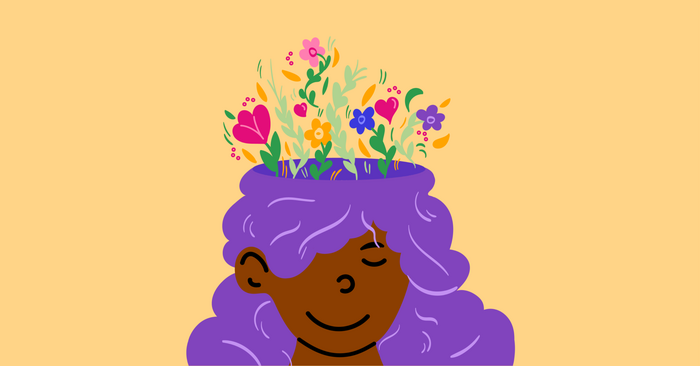Stress, anxiety, and burnout are reaching historic highs in the U.S., prompting more people to explore therapy as a path to better well-being. Whether you’re struggling with emotional overwhelm, navigating a life transition, or simply seeking personal growth, the right therapist can make a profound difference. This guide explains the different types of therapy, signs it’s time to seek help, therapy formats, how to find the right therapist, and questions to ask once you do.
Stress and burnout are on the rise
If you’ve been feeling anxious, fatigued, or emotionally drained, you’re far from alone. According to the American Psychological Association, 87% of Americans cite money and inflation as top stressors, with 81% also worried about global instability.
Meanwhile, a 2023 report from the U.S. Surgeon General labeled loneliness and isolation a public health epidemic. These emotional stressors, compounded by post-pandemic recovery and a strained healthcare system, highlight the urgent need for accessible, compassionate mental health care.
Different types of therapy
Understanding the types of therapy available can help you choose the best path for your needs. According to the APA, here are four common approaches:
-
Cognitive therapy: Focuses on changing negative thought patterns.
-
Behavioral therapy: Helps build skills to manage emotions and improve relationships.
-
Humanistic therapy: Encourages self-growth and self-actualization.
-
Mindfulness-based therapy: Emphasizes present-moment awareness and emotional regulation.
When to consider getting therapy
Even when symptoms aren’t obvious, therapy can be incredibly beneficial. Here are signs—according to the National Institute of Mental Health and the Mayo Clinic—that it may be time to talk to a professional:
Symptoms of depression
-
Persistent sadness, hopelessness, or emptiness
-
Loss of interest in activities
-
Fatigue or lethargy
-
Sleep or appetite changes
-
Guilt or feelings of worthlessness
-
Difficulty concentrating or making decisions
-
Thoughts of death or suicide
Symptoms of anxiety
-
Constant worry or fear
-
Restlessness or irritability
-
Muscle tension or trembling
-
Panic attacks
-
Trouble sleeping or focusing
Other signs of declining mental health
-
Difficulty coping with stress or life changes
-
Communication problems or relationship conflict
-
Low self-esteem or body image issues
-
Substance use concerns
-
History of trauma
Other benefits of therapy
Therapy isn’t just for crisis moments. Many people use it proactively to enhance emotional intelligence, resilience, and quality of life. According to Mental Health America, therapy can:
-
Deepen self-understanding
-
Improve focus and productivity
-
Support emotional regulation
-
Strengthen relationships
-
Break negative habits
-
Prevent long-term mental health issues
In-person therapy
- Offers direct personal connection
- May be more effective for certain conditions
- Requires travel and scheduling coordination
|
Virtual therapy
- Involves video, phone, or chat sessions
- Offers flexibility and access, especially in rural areas
- Shown to be equally effective for many conditions
|
Individual vs. group therapy
Individual therapy
- Highly personalized
- Often used for deeper or more private issues
|
Group therapy
- Peer-supported and cost-effective
- Great for shared experiences like grief or addiction
|
Short-term vs. long-term therapy
Short-term therapy
- Goal-oriented
- Structured (e.g., CBT)
- Typically 6–20 sessions
|
Long-term therapy
- Open-ended and exploratory
- Focuses on root causes and emotional growth
- More time- and cost-intensive
|
How to find a great therapist
Step 1: Determine what you need help with
Identify why you’re seeking therapy—stress, relationship issues, trauma, etc.—to find someone aligned with your goals.
Step 2: Assess your financial resources
-
Insurance: Check your provider directory and reimbursement policies.
-
Self-pay: Expect $100–$200 per session in private practice.
-
Sliding scale and app-based therapy: Lower-cost alternatives like BetterHelp or community health centers.
-
Free options: County mental health departments, federally funded clinics, or employee assistance programs (EAPs).
Step 3: Search and verify credentials
-
Use directories like PsychologyToday.com, GoodTherapy.org, or APA’s Psychologist Locator.
-
Check licensure status and specializations.
-
Know the acronyms: LCSW (social work), PhD/PsyD (psychologist), MFT (marriage and family therapist).
Step 4: Evaluate personal and cultural fit
It’s important to feel seen and safe. While therapist race, gender, or background may be important to some, Nguyen from Mental Health America suggests aligning on goals and values as a priority.
10 questions to ask your new therapist
Before committing, consider asking:
-
What is your experience working with people who have similar issues to mine?
-
What is your approach to cultural sensitivity (e.g., BIPOC, LGBTQIA+)?
-
How long do you typically work with patients?
-
How do you and your patients decide on goals for therapy?
-
How do you measure success?
-
What are your fees, and do you offer a sliding scale?
-
Do you offer virtual therapy sessions?
-
What is your policy for emergency sessions?
-
What is your cancellation policy?
-
How should I prepare for each of my therapy sessions?
FAQs
Why is seeking therapy important in current times?
With stress, anxiety, and burnout reaching unprecedented levels, many people are exploring therapy as a path to better well-being. The US Surgeon General declared a loneliness and isolation epidemic in 2023, making it more important than ever to find a good mental health provider.
What are the different types of therapy available?
There are four main types of therapy: Cognitive Therapy, which focuses on changing negative thought patterns; Behavioral Therapy, which focuses on learning skills to manage emotions and improve relationships; Humanistic Therapy, which helps you make rational choices and develop to your fullest potential; and Mindfulness Therapy, which focuses on being present in the moment and increasing your awareness of yourself.
How can I recognize if I need therapy?
If you are experiencing any symptoms of depression, anxiety, or poor mental health, the National Institute of Mental Health recommends that you seek therapy. Symptoms can include feelings of sadness, hopelessness, loss of interest in activities, difficulty sleeping, changes in appetite, feelings of worthlessness, difficulty concentrating, and thoughts of death or suicide.
What are the different formats of therapy?
Therapy can be conducted in different formats depending on your personal needs, preferences, and lifestyle. These include in-person therapy, virtual therapy, individual therapy, group therapy, short-term therapy, and long-term therapy. Each format has its own benefits and considerations.
How do I find the right therapist for me?
When searching for a therapist, consider your insurance coverage, the therapist's specialty, credentials, and reviews. Once you've found a potential therapist, ask them questions about their experience, approach to cultural sensitivity, typical patient duration, goal setting, success measurement, fees, virtual session availability, emergency session policy, cancellation policy, and how to prepare for each session.











